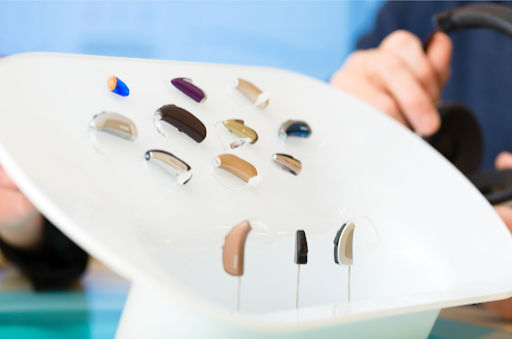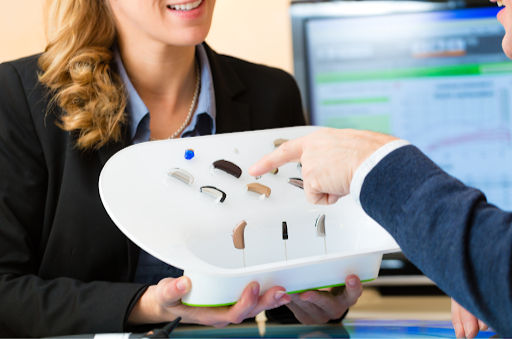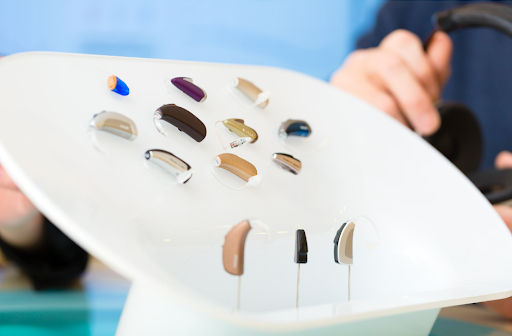Choosing the Right Hearing Aid for Your Needs
- David Broadside

- Jun 16, 2024
- 3 min read
In a world filled with sounds, the ability to hear clearly is a precious gift. However, for many individuals experiencing hearing loss, finding the right hearing aid can make a significant difference in their quality of life. With a wide array of options available today, choosing the perfect hearing aid may seem daunting. But fear not! This guide is here to help you navigate through the process with ease.
Understanding Your Hearing Needs
The first step in selecting the right hearing aid is to understand your specific hearing requirements. Hearing loss can vary in degree, ranging from mild to profound. A comprehensive hearing test conducted by a licensed audiologist can determine the extent and nature of your hearing loss. This information will guide you in choosing a suitable hearing aid that matches your needs.

Types of Hearing Aids
Once you have a clear understanding of your hearing loss, it's time to explore the different types of hearing aids available. There are several styles to choose from, each designed to accommodate different preferences and degrees of hearing loss.
Behind-the-ear (BTE): This style sits comfortably behind the ear and is suitable for all types of hearing loss. It's easy to handle and can accommodate larger batteries for longer usage.
In-the-ear (ITE): These hearing aids are custom-made to fit the shape of your ear canal. They are less visible but might be limited in features due to their smaller size.
In-the-canal (ITC) and completely-in-the-canal (CIC): These are discreet and fit partially or completely inside the ear canal. They are less visible but might not be suitable for severe hearing loss.

Considering Lifestyle Factors
When choosing a hearing aid, it's crucial to consider your lifestyle and daily activities. Do you lead an active lifestyle, participating in sports or outdoor activities? Or are you mostly in quieter environments? Understanding your lifestyle will help determine the features you need in a hearing aid.

For active individuals, a water-resistant or sweat-proof hearing aid might be essential. Those who attend a lot of meetings or social gatherings may benefit from hearing aids with advanced noise-canceling capabilities to enhance speech clarity in crowded environments.
Budget Considerations
Another critical aspect of choosing a hearing aid is your budget. Hearing aids come in a wide price range, depending on their technology and features. While it's tempting to opt for the latest and most advanced model, it's essential to find a balance between your needs and budget.

Discuss your budget with your audiologist, who can recommend suitable options that provide the best value for your money. Some hearing aids may be covered by health insurance, so be sure to explore your coverage options.
Technology Features
Modern hearing aids are equipped with advanced technologies that can enhance your listening experience. Here are some features to consider:
Bluetooth Connectivity: Allows you to stream audio directly from your phone or other devices.
Telecoil: Useful for hearing better on the phone or in venues equipped with hearing loop systems.
Directional Microphones: Focuses on sounds coming from a specific direction, helpful in noisy environments.
Rechargeable Batteries: Eliminates the need for frequent battery changes.

Personal Preferences
Beyond technical specifications, personal preferences play a vital role in choosing a hearing aid. Some individuals prioritize discretion and opt for nearly invisible models, while others prefer bold colors or customizable designs.

Don't hesitate to express your preferences to your audiologist. They can guide you towards options that align with your style and comfort preferences.
Trying Before You Buy
Choosing a hearing aid is a personal decision. It's essential to try out different models before making a final choice. Many audiologists offer trial periods during which you can test the hearing aid in various environments and situations.

Take advantage of these trial periods to ensure that the hearing aid you choose feels comfortable and meets your hearing needs effectively.
Maintenance and Follow-Up Care
Once you've selected your hearing aid, proper maintenance and follow-up care are crucial for optimal performance. Learn how to clean and care for your hearing aid to prolong its lifespan. Schedule regular follow-up appointments with your audiologist for adjustments and to address any concerns.
Conclusion
Choosing the right hearing aid is a significant step towards improving your hearing health and overall well-being. By understanding your hearing needs, considering lifestyle factors, budget, and personal preferences, you can make an informed decision. Remember, your audiologist is your partner throughout this journey, so don't hesitate to ask questions and seek guidance. Embrace the world of sound with confidence and clarity!





Comments